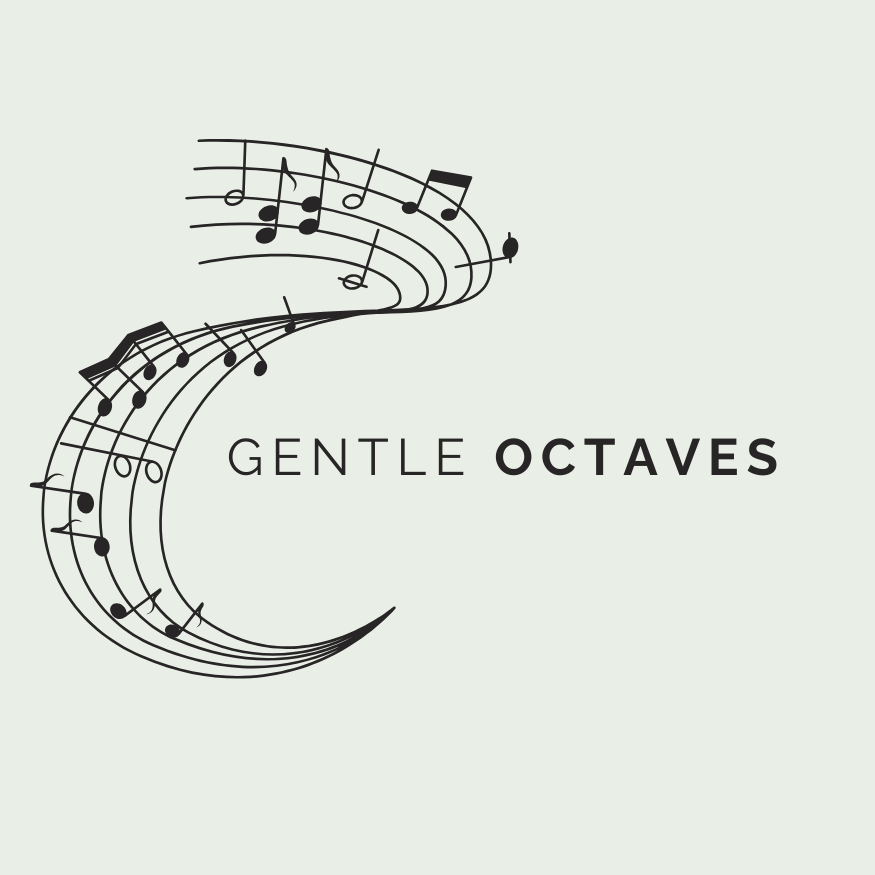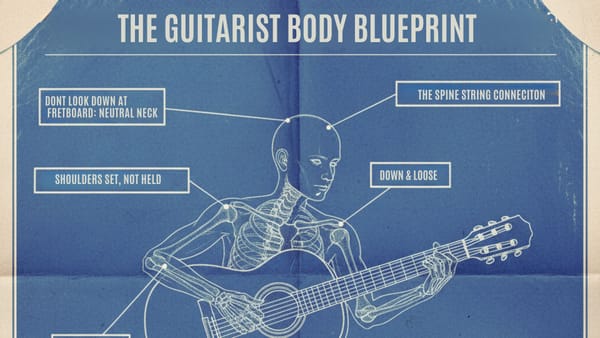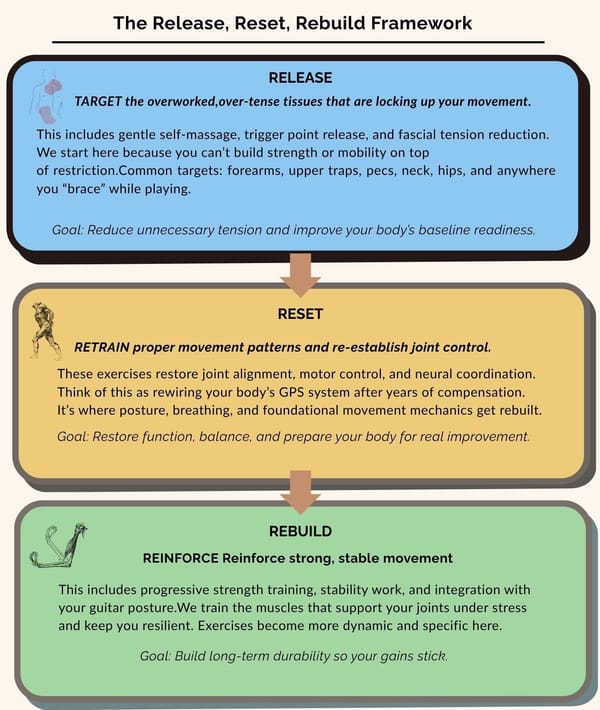From Stage Fright to Spotlight: Your 5-Day Guide to Confident Performance
Practical, psychology-backed tools to calm your nerves and perform with confidence: whether you sing, play, or speak.

That moment before you perform your stomach flips, your hands sweat, and your mind races.
It’s not a sign you’re weak. It’s your body doing exactly what it was built to do under pressure. The trick is learning how to work with it, not against it.
Why Performance Anxiety Happens (and Why It’s Not Your Fault)
Your brain sees a crowd the same way it sees a charging bear: as a threat. Heart rate spikes. Breath shortens. Muscles tense. This fight-or-flight response evolved to protect you, not to help you nail that guitar solo or vocal run.
Past criticism, burnout, or perfectionism can train your body to expect danger every time you step up to perform. You’re not incapable of confident performance you may just been practicing fear without realizing it.
I’ve been there too. When you’ve carried self‑judgment, criticism, or burnout, your body learns to expect danger every time you perform.
But here’s the transformation I promise: in 5 days, you’ll reconnect with presence, calm your nerves, and feel more at home on stage than you have before.
You won’t become a fearless performer in five days nobody does. The truth is the more you perform the more you learn, the better you get.
What you can do is learn how to steady your body, quiet your mind, and build real control under pressure.
Let’s turn fear from blocker into feedback.
The 5‑Day Confidence Reset (Your Daily Map)
Day 1 – Calm the Body First
- Diaphragmatic breathing reduces cortisol and heart rate.
- Ground yourself by pressing your feet firmly into the floor, feeling your weight evenly spread.
Day 2 – Mental Rehearsal for Safety
- Visualization activates the same neural pathways as actual performance.
- See the stage, hear the sound, feel the space — rehearse calmness.
Day 3 – Small Wins, Big Confidence
- Gradual exposure retrains the nervous system.
- Start with your “safe edge” maybe playing for one friend and move up one rung at a time.
- What would your first rung on the ladder be?
Day 4 – Anchor Your Performer Identity
- Pick your on-stage self: the storyteller, the soulful singer, the rock-solid rhythm player.
- A strong performer identity reduces anxiety.
Day 5 – Performance Day Rituals
- Warm up your voice, your hands, or both.
- Breathe, focus, and step into the spotlight with intention.
- Review what went well afterward to lock in the progress.
Fear will shrink when you step forward; step back and it will grow.
A Simple Daily Habit You Can Do Now
The “5‑Minute Stage Cooldown”
Use this before or after any rehearsal or performance:
- Grounding : Stand or sit, plant your feet, feel weight evenly.
- Deep Breath In (4s) → Pause (2s) → Exhale (6s)Let the exhale be longer to calm your nervous system.
- Visual Snapshot: Close your eyes briefly and imagine the room, the audience, your hands on your instrument — but feel calm in that scene.
- Micro Exposure: Sing or play one phrase softly as though you’re sharing it, not performing for judgment.
- One Positive Note: Mentally note one thing you did well (even if it’s “I remembered to slow down”).
Do this daily (or before any playing). Over time, your body begins to expect calm in performance contexts.
Why This Method Works
This approach blends performance psychology, body awareness, and stagecraft into a process you can actually follow.
- Mind‑body integration: You don’t just train your thoughts, you train your body’s reactions.
- Incremental exposure: You don’t go from zero to stadium. You layer small wins.
- Identity anchoring: When you step into a performer version of you, you give yourself permission to show up, mistakes and all.
- Reflection loop: You catch what works, so you adapt not just blindly push.
Stage fright isn’t a personality flaw it’s biology being dramatic. And the fastest way to turn biology into an ally? Work with it, not against it.
Remember: You don’t wait for confidence to perform: you perform to build confidence.
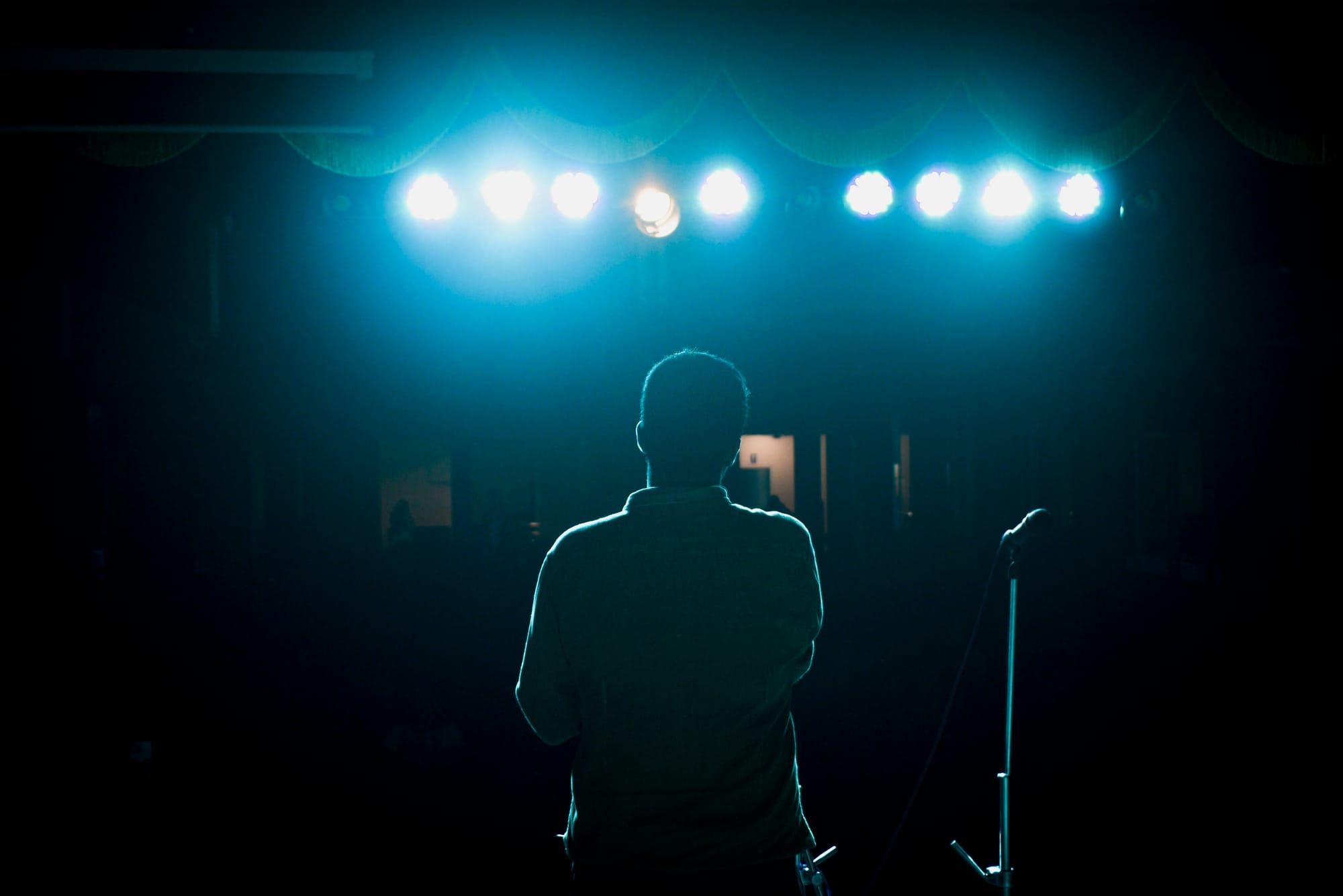
Conclusion: Your Turn to Step Up
Fear doesn’t have to be the boss anymore. Start with Day 1 tomorrow and keep climbing your ladder until the stage feels like home.
Your body doesn’t know the difference between a full theatre and your neighbour’s cat: it just thinks something’s watching you. So start small, start now, and grow into the spotlight.
What’s the smallest performance you can plan this week to start your journey?
F.P
Founder, Gentle Octaves
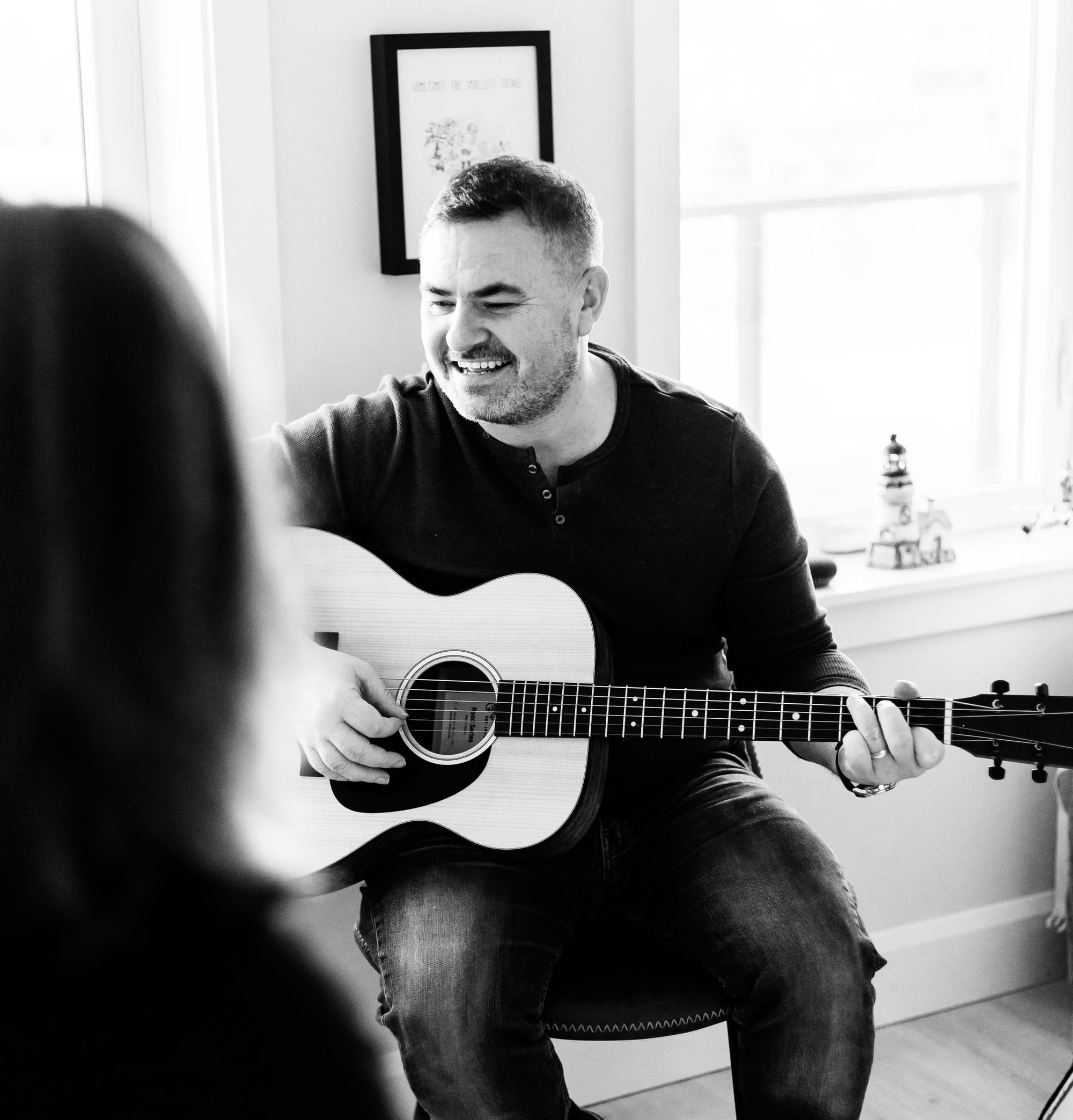
F.P. O’Connor
F.P. O’Connor is a manual osteopath, psychology grad, and lifelong musician who helps adults play with less pain and more confidence.
Through Gentle Octaves Studio, he blends science, movement, and musicianship to help mature players keep creating for life.
www.gentleoctaves.com
Release → Reset → Rebuild™ your sound
Q: What causes stage fright for adult musicians, and is it common at my age?
A: Yes — stage fright is very common, even for experienced players. It’s often not about technical skill but your nervous system interpreting performance as a “threat” (sweaty palms, racing heart, distraction).
Q: Can I make real progress in 5 days‑even if I’ve had performance anxiety for years?
A: You won’t erase years of anxiety overnight—but you can build tools and micro‑habits in 5 days that start to shift your experience: calm your body, coach your mind, and begin showing up with greater control. This is exactly the outcome of this guide.
Q: What should I do the day of a performance to reduce nerves?
A: Key practical steps:
- Arrive early and familiarise yourself with the space (reduces “unknown” stress).
- Use a short breathing or grounding ritual (4‑4‑6 counts works).
- Use a micro‑visualisation: imagine your first note landing with confidence.
Q: If I still feel shaky after following the 5‑day plan, does that mean I’ve failed?
A: Not at all. Consistent progress is what matters. Think of each performance as a data point. The system builds muscle‑memories of confidence over time—not instant perfection.
For the Curious:
- Craske, M. G., et al. (2014). Maximizing exposure therapy: An inhibitory learning approach. Behaviour Research and Therapy, 58, 10–23.
- Guillot, A., & Collet, C. (2008). Construction of the motor imagery integrative model in sport: A review. British Journal of Sports Medicine, 42(9), 716–721.
- Ma, X., Yue, Z. Q., Gong, Z. Q., et al. (2017). The effect of diaphragmatic breathing on attention, negative affect, and stress in healthy adults. Frontiers in Psychology, 8, 874.
- Markus, H., & Wurf, E. (1987). The dynamic self-concept: A social psychological perspective. Annual Review of Psychology, 38, 299–337.
- Steptoe, A. (2001). Negative emotions in music making: The problem of performance anxiety. Journal of Anxiety Disorders, 15(6), 491–505.
